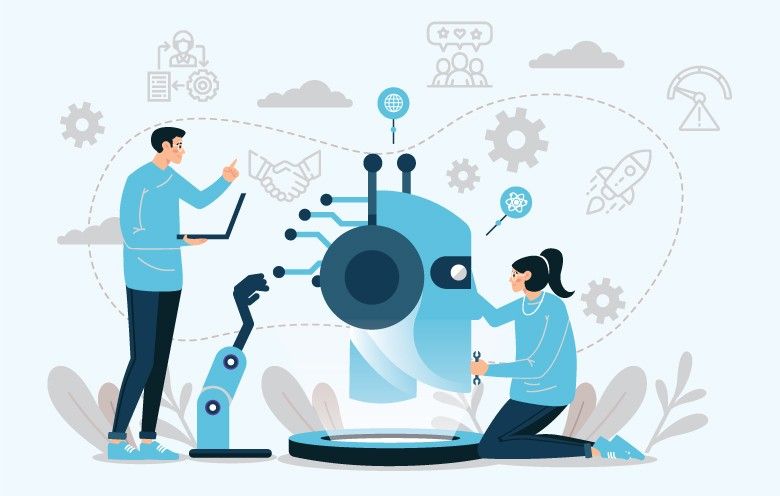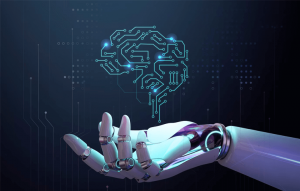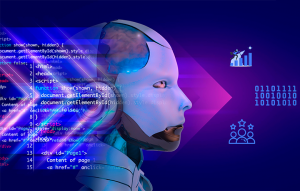For years, DevOps was a term that was used to describe the software development cycle as it was being introduced into the continuous delivery process. The idea of using DevOps in an IT environment has become more prevalent over the last few years and many companies are now trying to enhance their DevOps strategies.
DevOps – the practice of merging development and operations – has been around for a while now. It was created to help developers collaborate and manage their code deployments in an agile way. While it has helped teams to work more efficiently together, it cannot handle machine learning operations because it lacks the necessary skill sets required to do so.
Machine learning (ML) is about making predictions from data, as opposed to conventional programming where the developer provides a set of instructions for the computer to follow. It can be used to classify, segment and label data. It is also used in prediction, forecasting, optimization and personalization, to mention a few.
Here, MLOps comes into the picture. MLOps is the unification of machine learning and operations. It refers to tools and practices that are used to develop better communications across the organization. MLOps deployment automates the entire machine learning lifecycle to enhance the efficiency of deployment and continuous integration.
Incorporating DevOps ideas into machine learning shortens the development cycle and improves quality control. It even enhances the capacity to acclimatize to altering business requirements. It facilitates faster development cycles, speeds up time to market, augments the development speed and develops better code quality with the help of suitable testing.
What is MLOps?
MLOps is a new type of system administration that is needed in the age of machine learning. MLOps provides tools for monitoring, modeling, optimizing and automating machine learning operations.
Machine learning relies on insights from data to produce models that can be used to make predictions or suggestions. With the exponentially rising number of devices, devices with different kinds of capabilities and diverse applications in our life, these resources will help developers to create more scalable and reliable applications with less effort. All these resources are interconnected in a single platform called MLOps.
What is MLOps model management?
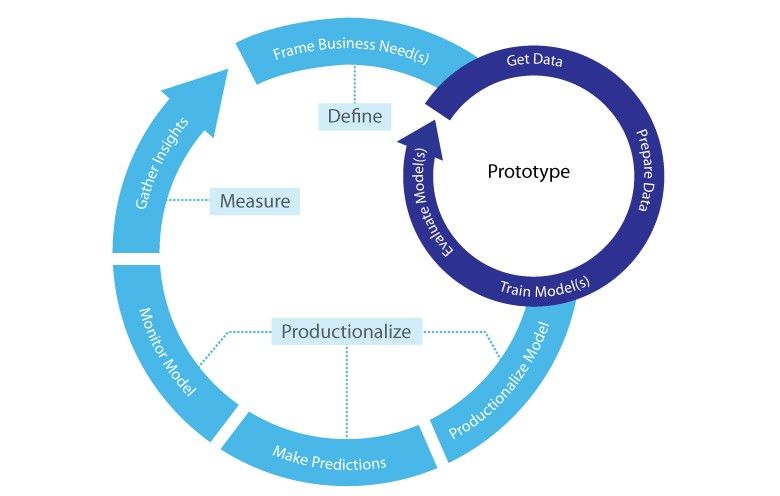
MLOps model management refers to the process of efficiently handling machine learning models throughout their lifecycle. It involves various tasks such as version control, model packaging, deployment, monitoring and continuous integration/continuous deployment (CI/CD) pipelines. The goal is to ensure smooth and effective management of machine learning models, enabling organizations to optimize their performance, scale them as needed, monitor their behavior and facilitate rapid iterations for continuous improvement. MLOps model management plays a crucial role in streamlining the deployment of machine learning solutions and ensuring their successful integration into production environments.
Why do we need MLOps deployment?
MLOps is a methodology that applies the principles of DevOps to the development of machine learning projects. By integrating the best practices of software development and operations, MLOps enables teams to build, deploy, and manage ML systems more efficiently and effectively.
This approach streamlines the entire ML lifecycle, from data preparation and model training to deployment and monitoring, ensuring robustness, scalability, and maintainability of machine learning systems. Emphasizing collaboration and automation, MLOps empowers organizations to adapt quickly to market changes, iterate on models, and deliver high-quality ML solutions with confidence.
Now, let’s explore some of the benefits and reasons that make MLOps essential for your business:
Efficiency and automation
MLOps streamlines the machine learning development and deployment process, automating repetitive tasks and reducing manual intervention. This ensures faster model development and deployment, saving time and resources.
Scalability
With MLOps, organizations can easily scale their machine learning workflows to handle larger datasets and more complex models. This scalability is essential as businesses grow and need to process more data.
Model monitoring and management
MLOps provides tools and processes for monitoring the performance of deployed machine learning models. It helps detect issues and anomalies, allowing for timely model updates and improvements.
Collaboration and version control
MLOps facilitates collaboration among data scientists, developers, and operations teams by providing version control and tracking changes in machine learning models. This ensures better communication and coordination throughout the development process.
Risk mitigation and compliance
MLOps emphasizes security and compliance, helping organizations manage risks associated with handling sensitive data and ensuring that models adhere to industry regulations and standards.
Continuous improvement
MLOps enables continuous integration and continuous deployment (CI/CD) for machine learning models, allowing organizations to iterate rapidly, experiment with different approaches, and continuously improve model performance.
Continuous value and fewer risks
MLOps minimizes the risks linked with data science, machine learning and AI aspects and helps organizations create long-term value.
Streamlined practices and better customer experience
Machine learning operations support in deploying solutions that help organizations to:
- Discover unrealized income streams
- Save time
- Minimize resource costs
- Streamline business processes
- Make better decisions
- Improve customer experience
Rapid innovation and easy deployment
MLOps improves collaboration and automation that promote faster transformation and development of innovative ML solutions. It also improves the continuous integration, deployment and delivery processes of ML solutions.
Efficient lifecycle management
MLOps improves the efficiency of all the teams and ensures that you complete the development of your machine learning project, right from design to deployment efficiently.
Other benefits of MLOps
- Minimizing technical debt
- Applying agile principles to ML project
- Reproducibility assurance
- Data versioning
- Automated testing of ML artifacts
- Monitoring performance of models in production
- CI/CD support for data and assets
- Continuous training support
- Scalability and security
DevOps vs MLOps
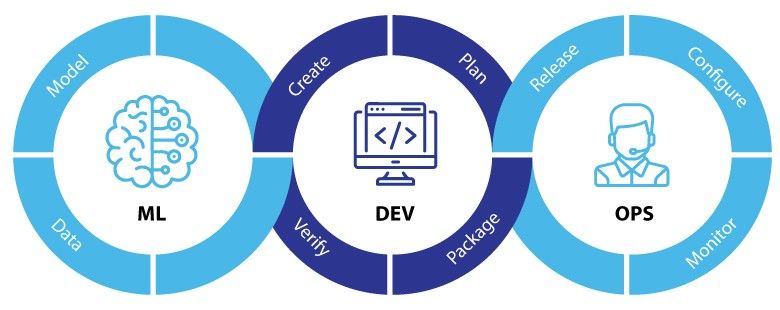
The stages in DevOps are targeted for the development of software applications. It’s up to you how you wish to create, build and test a code, make a release plan and deploy the features of an application. You check and supervise the infrastructure where you deploy your application till it is completely built.
Talking about MLOps, it has fundamental similarities with DevOps since it has been derived from DevOps principles. Yet, DevOps and MLOps are quite different in execution, let’s check how:
Scoping
With MLOps, we classify the project and check if there is any requirement for a machine learning algorithm to solve the issues. We also perform requirement engineering to check if the applicable data is available. Then we verify and confirm if the data fetched is non-biased and shows an actual use case.
Data engineering
At this stage, the developers collect, clean, format, label and organize data as well as establish baselines.
Modelling
Here comes the coding part, where we create an ML model and train it with the processed data. Next, we perform error analysis, error measurement and track the performance of the model.
Deployment
After all the above stages, we package the model and deploy it. Deployment can be done either in the cloud or on edge devices as per the requirement.
Monitoring
After deployment, we depend upon a monitoring infrastructure for maintenance and updating the model. We monitor the infrastructure to check the load, usage, storage, etc. and then we monitor the model for its performance, accuracy and other crucial factors.
Suggested: 5 industry-specific MLOps use cases
How Softweb Solutions can help you with MLOps integration
Softweb Solutions is your trusted partner in embracing the potential of MLOps. Our experienced team will guide you through the implementation of machine learning operations, automating crucial tasks in your cloud environment.
We offer tailored services to cater to your specific needs, enabling you to harness the power of machine learning to enhance efficiency and stay competitive in the market. With our expertise and support, you can unlock the true potential of MLOps and drive your business towards exponential growth.
Empower your business with MLOps!
Machine learning operation is the latest addition in the world of DevOps. MLOps aims to make your machine learning models reliable to help automate all operation needs in the cloud.
Machine learning has become an integral part of the enterprise. MLOps deployment powers your ML solutions by improving efficiency and scalability of your models.
Embrace machine learning to revolutionize your business. Get in touch with us today to explore how Softweb Solutions can transform your business through MLOps. Our expert team will guide you through the transformative journey, providing tailored services to enhance efficiency and competitiveness. Discover the potential of machine learning for exponential growth.


